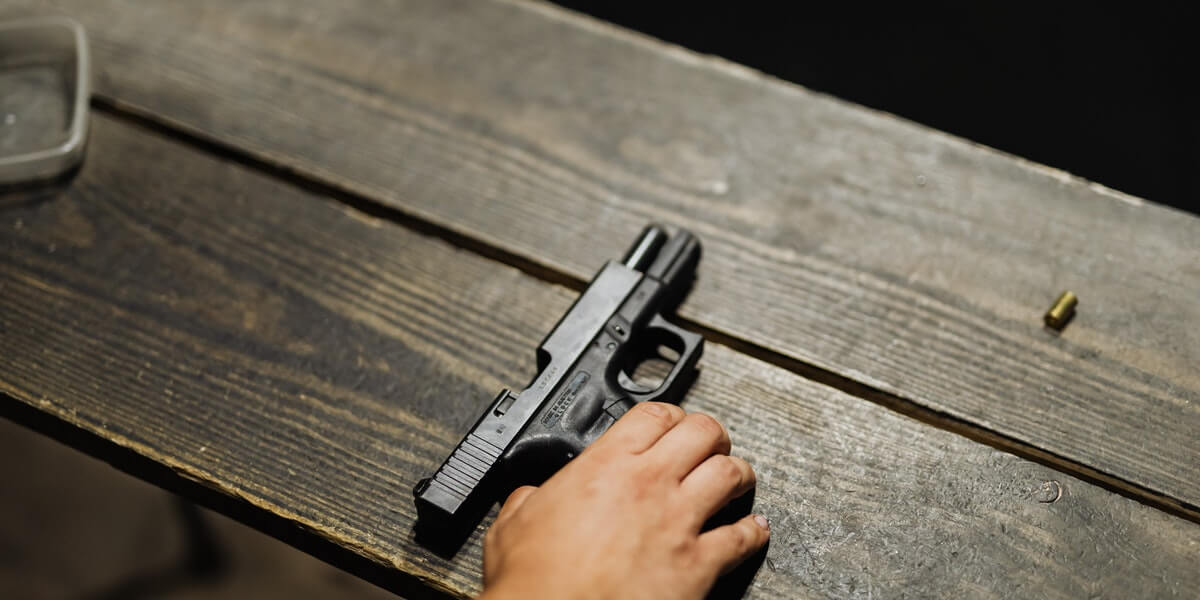New York State has imposed rigid laws on carrying pistols since the early part of the 20th century. In 1905, it was a misdemeanor for anyone over the age of 16 to carry a pistol or firearm concealed without a license from a police magistrate. 1905 N.Y. Laws ch. 92, §2, pp. 129-130. The “Sullivan Law,” passed in 1911, expanded the State’s restrictions on handguns without prior government approval. See 1911 N.Y. Laws ch. 195, §1, p. 443. Following the passage of the Sullivan Law, in 1913 it was clarified that, “Magistrates could ‘issue to [a] person a license to have and carry concealed a pistol or revolver without regard to employment or place of possessing such weapon’ only if that person proved ‘good moral character’ and ‘proper cause.’” N.Y.S. Right & Pistol Ass’n v. Bruen, Superintendent of New York State Police, 597 U.S. (2022); See also 1913 N.Y. Laws ch. 608, §1, p. 1629.
In New York, the burden has historically been on the licensee to acquire a license. For example, in order for someone to possess a firearm at home, they must convince a “licensing officer” that, amongst other things, “no good cause exists for the denial of the license.” §§400.00(1)(a)-(n)(West Cum. Supp. 2022). However, the burden is more demanding if an applicant wishes to conceal carry a firearm out of the home for self-defense purposes. The applicant needs to demonstrate that “proper cause” exists. New York State case law has defined “proper cause” to mean “demonstrat[ing] a special need for self-protection distinguishable from that of the general community.” E.g., In re Klenosky, 75 App. Div. 2d 793, 428 N. Y. S. 2d 256, 557 (1980).
The Recent Supreme Court Decision
On June 23, 2022, the Supreme Court struck down a New York State law that placed significant limitations on applicants seeking an unrestricted concealed carry permit. In a 6-3 decision, the Supreme Court reversed the decision of the lower court, marking the first expansion of gun rights since 2008.
Petitioners Brandon Koch, from Troy, NY, and Robert Nash, from Averill Park, NY, had their case brought by the New York State Rifle & Pistol Association, Inc., a public interest group designed to defend against Second Amendment intrusions. Robert Nash applied for an unrestricted license to carry a pistol in public for personal safety. When he originally applied for his license, he was denied unrestricted carry, and instead was granted permission to carry for hunting and outdoor purposes. He applied again in 2015, due to a string of robberies occurring in his neighborhood, but this request was similarly denied. Brandon Koch was in the same position as Robert Nash when he applied for an unrestricted carry, but his unrestricted concealed carry application was denied. He was, however, granted a license to “carry to and from work.”
When the petitioners’ case was brought before the District Court, it was dismissed, and the Court of Appeals affirmed the decision of the lower court. The decision was made based on a previous decision, which held that the requirement was “substantially related to the achievement of an important governmental interest.” Kachalsky v. County of Westchester, 701 F. 3d 81, 96 (CA2 2012).
The majority decision, written by Justice Clarence Thomas, held that “New York’s proper-cause requirement violates the Fourteenth Amendment by preventing law-abiding citizens with ordinary self-defense needs from exercising their Second Amendment right to keep and bear arms in public for self-defense.” In Justice Kavanaugh’s concurring opinion, he added two extra points of emphasis for consideration. First, he noted that the decision would not prohibit the States from imposing their own licensing requirements for carrying pistols within their borders. In his second point, he referred to the language of the landmark Second Amendment case, D.C. v. Heller, in which the author of the opinion, Antonin Scalia, stated: “nothing in our opinion should be taken to cast doubt on longstanding prohibitions on the possession of firearms by felons and the mentally ill, or laws forbidding the carrying of firearms in sensitive places such as schools and government buildings.” D.C. v. Heller, 128 S. Ct. 2783, 2816 (2008).
In his dissent, Justice Breyer focused on the statistics of firearm violence throughout the country. In the first portion of his argument, he pointed out that the Court decided this case on the basis of only pleadings, without any discovery or an evidentiary record. Additionally, he stated that the majority based their decision on history and failed to broaden their legal analysis. Specifically, Justice Breyer argued that the majority Court demonstrated the “practical problems with its history-only approach.” N.Y.S. Rifle & Pistol Ass’n, 597 U.S. at 85. In his opinion, the Court failed to correctly “identify and analyze the relevant historical facts.” In Justice Breyer’s opinion, “when courts interpret the Second Amendment, it is constitutionally proper, indeed often necessary, for them to consider the serious dangers and consequences of gun violence that lead States to regulate firearms.”
According to the Giffords Law Center to Prevent Gun Violence, half of the states around the country require individuals to receive a state-issued permit to carry concealed weapons in public spaces. Not including New York, only five other states—California, Hawaii, Maryland, Massachusetts, and New Jersey—have an analogue to the “proper cause” standard. While this decision does not prevent states from imposing general licensing requirements, it does loosen restrictions in the stricter states.
Moving Forward
This decision will most likely make it easier for individuals looking to apply for a concealed carry pistol permit. That being said, both Governor Kathy Hochul and the Biden Administration have spoken out against the Supreme Court’s decision. Specifically, Governor Hochul has responded by endorsing her support for Senate Bill S51001 and signing it into law on July 1, 2022.
Since Senate Bill S51001 has passed, it will take effect on September 1, 2022. As part of Bill S51001, Section 400.00 of the penal law, referenced above, will be amended to define good moral character, and provide new eligibility requirements, such as passing a firearms safety course, as well as additions to the disqualifying offenses and eligibility requirements. Additionally, it will require current licensees to recertify and renew their licenses after three years.
New York State’s response to SB S51001, among other things, will limit the possible places a firearm can legally be carried to—even with a proper permit. Specifically, the Bill provides an exhaustive list of sensitive locations, which bans the carrying of all weapons. If caught carrying a firearm in these locations, a person will be guilty of Criminal Possession of a Firearm in a Sensitive Location. Further, the Bill has added a provision making it a crime to be in possession of a weapon in a restricted location, which pertains mainly to private property. Now with SB S51001 signed into law, these changes will be incorporated as amendments to Section 265 of the Penal Code. While this analysis seems to draw support from Justice Kavanaugh’s concurrence, the definition of a “sensitive place” may indeed be the next issue SCOTUS is confronted with in the context of the Second Amendment.
Some of the most impactful updates in the Bill worthy of a specific mention are the changes to the storage of firearms. According to the Bill, “[n]o person shall store or otherwise leave a rifle, shotgun, or firearm . . . inside a vehicle without first removing the ammunition from and securely locking such [weapon] in an appropriate safe storage depository out of sight from outside of the vehicle.” For purposes of this change, a glove compartment or glove box shall not be considered an appropriate safe storage depository.
This Bill will also have a major impact on gun retailers as well. Sellers of firearms and ammunition will be required to keep records of their sales in a method approved by the New York State Police. Before a dealer can submit a request to the state police, NICS shall have issued a “proceed” response, or thirty calendar days must have elapsed since the date the dealer submitted a request to the division of state police to contact NICS for a national instant criminal background check.
These changes in New York State gun laws will affect many people throughout the state, especially avid outdoorsmen and licensed dealers. We encourage everyone to keep track of these updates, especially if you have a pistol permit of any degree or are a licensed firearms dealer. Follow us at Tully Rinckey, PLLC for updates regarding the new gun laws.
Zach Zallo is an associate with Tully Rinckey PLLC where he focuses his practice on criminal law. While licensed in New York, Zachariah has worked as a criminal defense lawyer focusing mainly on DWI defense from the misdemeanor to the felony level. Additionally, Zachariah has experience with Second Amendment-related issues that consist of firearm purchase denials, pistol permit applications and denials, and clearing records to enable a person to be eligible to legally bear and purchase a pistol or firearm. He can be reached at info@tullylegal.com or at (888)-529-4543.








